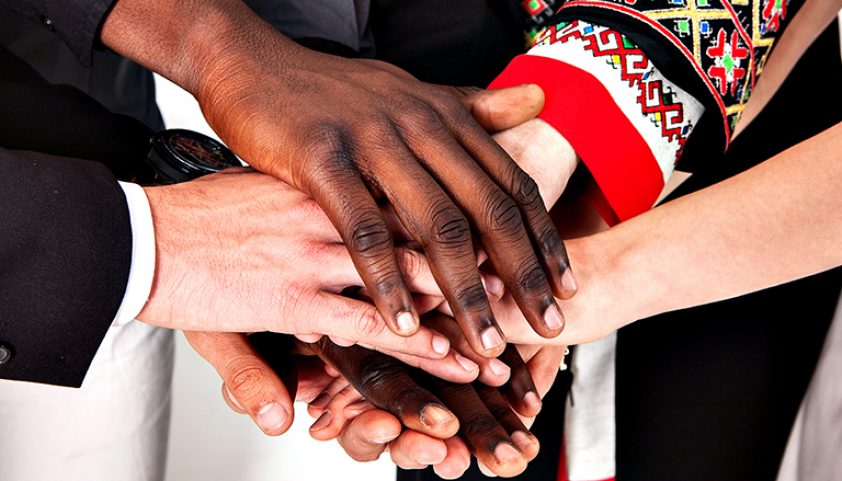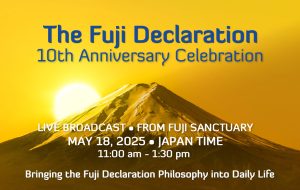The Language of Peace

If peace had a language, what would it sound like? Would it even have a sound? What types of characters would it have, if it had any at all? These questions illustrate what we think of when we think of language: the ability to speak and write so that we can communicate with one another. Humans have created tactile languages, vocal languages, sign languages, and even computer languages all in an attempt to communicate. But, what if we are missing something by limiting our definition? What if by defining language in this way, we have by the very nature of the definition restricted how we see the world and compile, process, and think about information from and about our reality?
When we attempt to communicate peace or communicate about peace, we are constrained by language. The very tool that we think we must use to attain peace can also be its biggest opponent. Since language is precisely how we consciously think, each of us is naturally limited in our ability to process thoughts by the process itself. But, what if we could think limitlessly?
It’s difficult to describe “peace”, true, divinely inspired peace. It has so many components that are required for it to be whole. Sure we have definitions for it that are composed of words and phrases that try to succinctly state what it is: tranquility, calm, order, harmony, cessation of hostility. But, they are wholly lacking in stating in unequivocal terms exactly what peace means. Because of this, we must each think of peace in a new language to communicate it to the world.
Peace is multidimensional and transcends time. For peace to truly exist, we must be able to project peace from our pasts to our present and into our future. Our current languages may not allow us to do that. It might be difficult, if not impossible, to project peace linguistically from a violent past into our present. And if we can’t do that, then peace won’t exist in our present or our future. So how do we communicate peace?
When we look to the divine spark in our spirit and heart we can become peace. Love, forgiveness, compassion, empathy, joy, harmony, all the wonderful feelings and indescribable emotions that comprise peace, they become us. Simply, we exist in peace. And once that happens, peace radiates from us. Every single act, each individual decision that we make speaks peace. Peace then becomes unbound by language. Language is no longer necessary for peace because our very existence and lives say everything that could not have been communicated.
Through the divine spark, we can begin to redefine how we communicate. We can look to our existence and actions to disseminate peace and in effect redefine how we conceive it. We will begin to see peace in a whole new light and peace itself will not be bound by a definition that comes from our material consciousness. It will become limitless. We will start to see peace in places where we thought it couldn’t exist, our pasts. And from there we will exist in and speak of it in our futures.




30/04/25
The Fuji Declaration was launched in May 2015 during a grand inauguration ceremony at Fuji Sanctuary. Since th[...]
09/05/24
The Fuji Declaration was launched in May of 2015 during a grand inauguration ceremony at Fuji Sanctuary. Since[...]
29/04/24
The Fuji Declaration will celebrate it’s 10th anniversary next May. Starting on this 9th anniversary and conti[...]
30/01/24
This year, as part of the Fuji Declaration 9th Anniversary Program, we will conduct a program with you to delv[...]
09/05/23
The Fuji Declaration 8th Anniversary Celebration At Symphony of Peace Prayers Fuji Sanctuary Japan May 21st, 2[...]
27/04/22
The Fuji Declaration 7th Anniversary Celebration At Symphony of Peace Prayers Fuji Sanctuary Japan May 15th, 2[...]
26/04/22
The Fuji Declaration initiative was launched in 2015 together with over 60 partner organizations and 200 honor[...]
07/01/22
The three co-initiators of the Fuji Declaration, Ervin Laszlo, Hiroo and Masami Saionji, invite you to watch t[...]